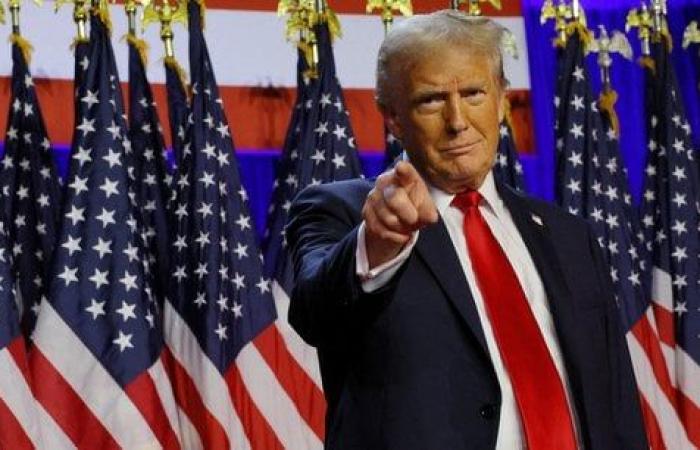Donald Trump has been promising this for many weeks. When he arrives at the White House in January, the newly elected president plans to impose particularly steep customs duties on his three main trading partners. 25% against Canada and Mexico, with whom the United States shares a free trade agreement. And up to 60% on Chinese products. Beyond a protectionist desire, Trump accuses them of not sufficiently stopping illegal immigration and drug trafficking, particularly fentanyl, from their countries.
Fentanyl: how Beijing is poisoning the United States
Enough to inspire a wave of panic among American businesses. Particularly those which import intermediate goods from abroad. “ If they produce a good that competes with a good imported from Europe and their intermediate goods come from China, it is rather unfavorable for them », Specifies Antoine Bouët, researcher and director of CEPII. In other words, companies that import from China will sell their final products at much higher prices than their competitors, for example from Europe. Among the sectors most affected by these possible taxes: automobiles, electronics and agriculture, notes John Plassard, economist at the Mirabaud bank.
In the meantime, some companies have wasted no time and have already started stocking goods on a short-term basis. Proof of this is that American imports from China increased by 10.4% on average year-on-year between July and September, underlines Allianz Trade in a note.
Others have already considered passing taxes on to American consumers, that is, increasing their prices, thus fueling inflation. Enough to weigh on the economy when households have already seen their purchasing power decrease. Yet another increase could therefore be difficult to accept.
Another solution: companies can also cut back on their margins.
« Which means selling more, to catch up on volumes and this can be complicated depending on the competitiveness of certain industries », nevertheless raises the economist John Plassard.
Mexico and Canada try to avoid Trump's tariffs
Repeated twice
However, this is not the first time that companies have faced this type of scenario. During his previous mandate, the American billionaire had already increased customs duties against China, but also on products and raw materials such as solar panels or even steel and aluminum.
Companies then implemented different strategies, with the aim of reducing their costs. “ Some have relocated their supply chains so that their products are not subject to high customs duties », notes John Plassard. But companies are now also considering relocating their production or signing contracts with countries such as Vietnam or Malaysia. A solution which can, however, extend the times of certain deliveries.
Moreover, ” other companies had negotiated with their supplier to reduce their costs, particularly large groups which have more influence », adds the economist.
In New York, a divided tech ecosystem after Trump's election
Lobbying to the rescue of businesses
Groups and corporations have also flocked to law firms and lobbyists for advice and protection. “ We received a lot of calls », entrusts to The Tribune Nicole Bivens Collison, director of the international trade and government relations division at the law firm Sandler, Travis & Rosenberg. Firms can, in fact, help companies minimize customs tariffs through tariff engineering or by playing on free trade agreements.
Above all, lobbying could be the golden ticket to being exempt from customs duties. “ Donald Trump will certainly give exemptions in exchange for financial support, this is the approach he has always adopted », notes Antoine Bouët. Already in 2018, certain categories of products were exempt from the tariffs imposed on China. The American media CNBC also reports that such favors were granted when the requests came from lobbies where the employees were contributors to the Republican Party. “ We don't know if it will be the same under Trump's second term “, nevertheless warns Nicole Bivens Collison.
Small and medium-sized businesses that rely on imports, however, could well pay the high price of tariffs. Given their size, they have more difficulty lobbying and reducing costs. For example, ” small retailers fear they will not be able to bear the increased costs. This could force them to close their business “, warns Meghan Cruz of the American Retail Federation (NRF) in a note.
Donald Trump will celebrate new market records on Wall Street
However, businesses will have to wait until the Republican arrives to find out what he really has in mind. According to economist John Plassard, Trump's tariff threats are ” his way of negotiating, you have to take these promises with a grain of salt », he analyzes. But for Nicole Bivens Collison, while many thought Trump would not take such steps in his first term, that scenario came true.






